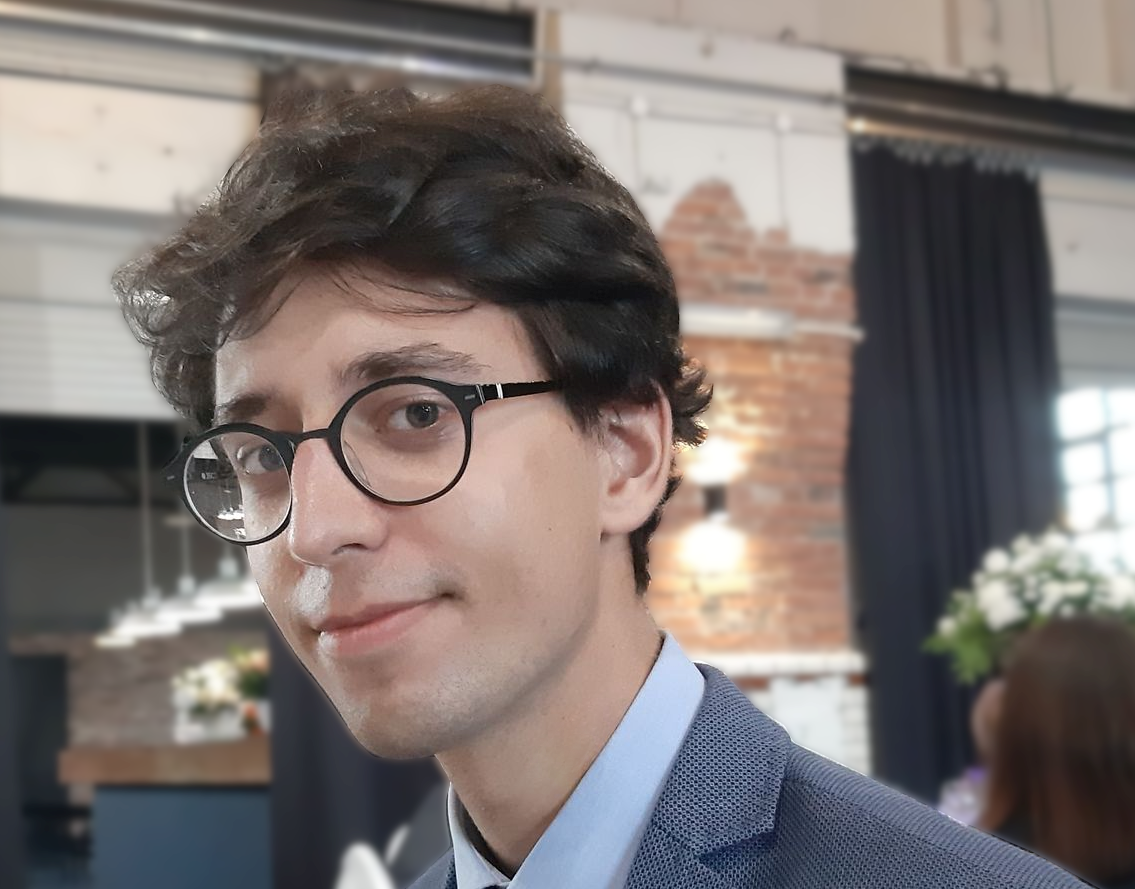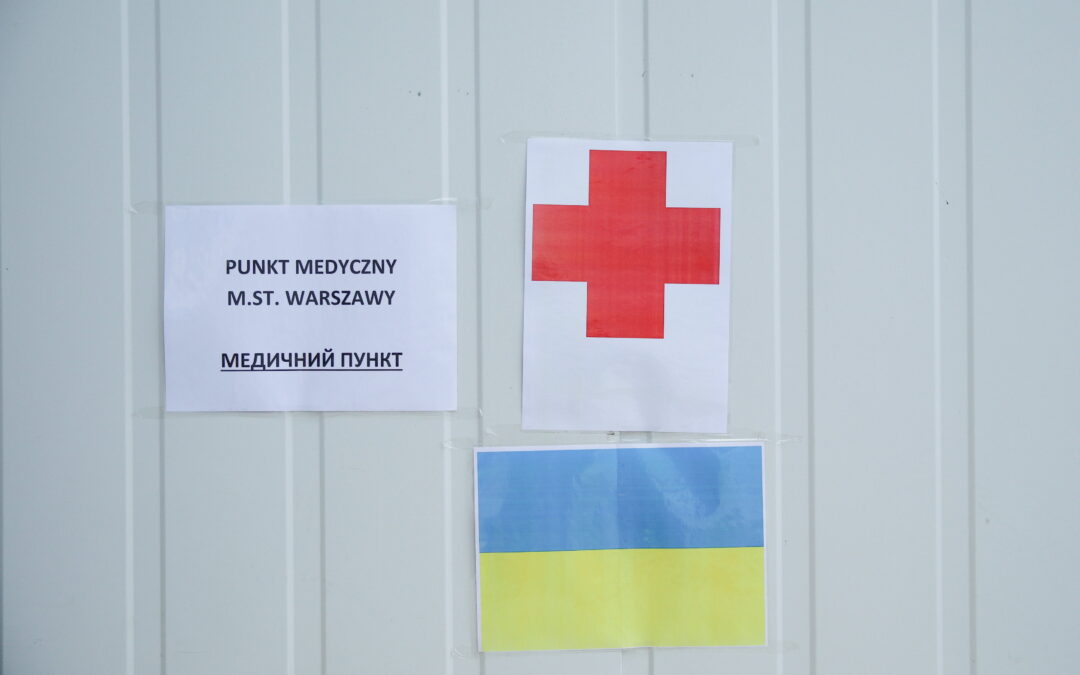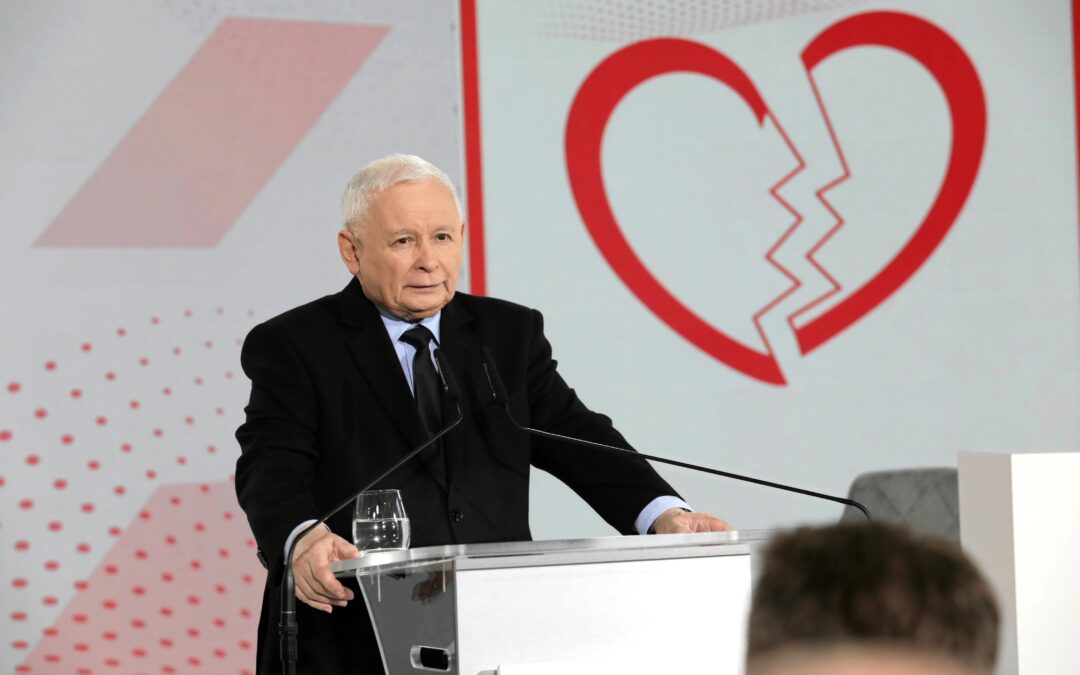A Polish IT student has set up a website to connect Ukrainian refugees needing medical treatment with doctors offering free consultations. In less than a week, it has already had more than 15,000 visitors.
Over one million people have fled from Ukraine into Poland since Russia’s invasion. The Polish government, local authorities, and civil society have mobilised to provide accommodation, food and other forms of support, including medical care.
The new website, Lekarze dla Ukrainy (Doctors for Ukraine), helps Ukrainian refugees find and arrange a free consultation with a suitable specialist, as well as offering assistance with translation of medical documentation in conjunction with the Polish Medical Council.
Speaking to Notes from Poland, Wydmański, a student at the Jagiellonian University in Kraków, said that 60 doctors and five Ukrainian-Polish interpreters have registered so far, and that “both of those numbers are growing rapidly – yesterday alone, we got 15 new doctors”.
The website is dedicated to people requiring urgent medical assistance as well as those who had to suspend ongoing treatment in Ukraine or who have run out of medication. The service so far lists doctors in 35 towns and cities around Poland, including Warsaw, Kraków and Poznań, as well as smaller municipalities like Chodzież and Nysa.

The platform offers help from gastroenterologists, radiologists, dentists, gynaecologists, diabetologists, radiologists, psychiatrists, oncological radiotherapists, family doctors, and physiotherapists. If necessary, patients are referred to hospitals.
The creator is also working closely with Medics for Ukraine, an initiative providing information on medical aid in Poland, to help people tackle legal issues.
Wydmański had the idea of starting the platform after seeing many doctors offering their help on social media free of charge. “My father is an oncologist, and he wanted to help out and provide free private consultations to refugees,” says the student.
“It quickly turned out that he isn’t the only one – after he wrote a Facebook post about that, he got contacted by a few of his friends who wanted to join him in this action,” he adds.
But such offers “had a very limited reach” and medics did not “have a way of reaching the people who need it”, says Wydmański. So the student decided to compile the volunteer doctors together on his website.
The portal currently operates in the Polish and Ukrainian languages and there are plans to expand it to include an English version. As communication happens directly and confidentially between patient and doctor, the precise number of people who have accessed help through the platform is unknown.
The government has approved a bill to:
– legalise the stay of Ukrainians and give access to public services, including healthcare and schools
– create a fund to help local authorities support those fleeing Ukraine
– pay families who host the refugees https://t.co/FlzvsbwLVY— Notes from Poland 🇵🇱 (@notesfrompoland) March 7, 2022
“We can only learn about help that we have provided if either the doctor or a patient gives us this information,” Wydmański explains. He told us the story of a woman who was forced to stop attending chemotherapy sessions in Ukraine because of the war and used the website after arriving in Poland.
“She managed to find contact information for my father, the oncologist, who was able to help her with resuming her treatment in Poland.”
Wydmański says that he plans to expand the website’s service further to meet the needs of a refugee population that is continuing to grow.
“Our plans for the future are mainly focused on allowing medical professionals around the world to help the refugees via a telemedical video platform, and on providing mental health aid to both the Ukrainians who have left and those who have remained in their country.”
How can you help #Ukraine?
☑️ Organise fundraisers 👉 https://t.co/novO55YV2K
☑️Donate to charitable organisations 👇
🇵🇱🤝🇺🇦 #WeStandWithUkraine #RazemDlaUkrainy pic.twitter.com/v6SoVnbjYu
— Polish Embassy UK 🇵🇱 (@PolishEmbassyUK) March 1, 2022
Main image credit: Dawid Zuchowicz / Agencja Wyborcza.pl

Natalia Parzygnat is a contributing editorial assistant at Notes from Poland and a graduate in Multiplatform Mobile Journalism from Birmingham City University. She has previously written articles for Birmingham Eastside and featured in HuffPost UK. Natalia is a recent BJTC Award Runner Up in Social Short Video category.



















